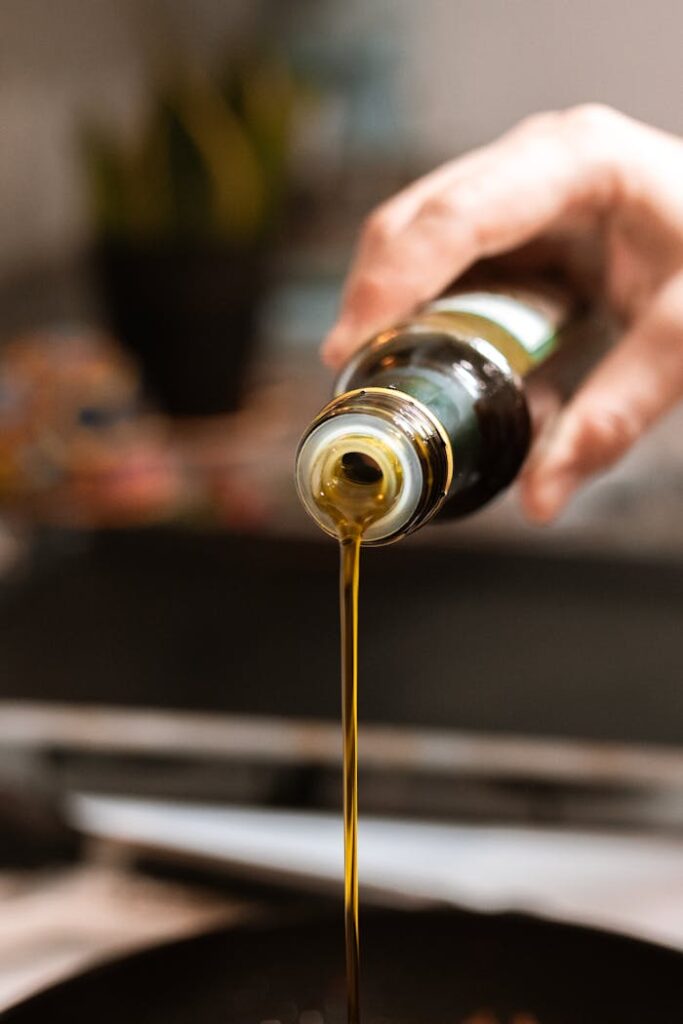
As a pet owner, you may be wondering how to feed your pet a small amount of olive oil. Ultimately, it’s an excellent and healthy ingredient often used when cooking with humans.
Sometimes, human beings are genetically programmed to adore cats. With big eyes, swaying tails, and screaming meows, these cats are adorable, independent, and easy to care for.
And the attention, love, and protection they give us are unique. We can live happily with the annoyances of their behavior and be in love with them, even if they destroy things around our homes or stomp into places they shouldn’t be. It’s only natural to share food with them.
But felines have distinct nutritional requirements and digestive systems from humans. It is, therefore, essential to determine if olive oil is healthy and safe for your pet and whether adding it to their diet is a good idea.
In this post, we’ll examine whether cats can have liquid gold and, if they do, what amount and often.
Are you interested in learning more?
Sign up for our newsletter, devoted explicitly to EVOO’s great food and Italy. You’ll also receive exclusive discourse.
Can Cats Have Olive Oil
Yes, your cat can consume olive oil in tiny quantities. It’s not toxic to cats (unless they suffer from an allergy) and, therefore, can be a treat for them on occasion or an element of their routine. It’s desirable to talk with your vet before introducing your pet to different foods.
The better question is, do you feed olive oil to your pet? Pets require a diet rich in protein but low in carbohydrates. Olive oil is an unrefined fat and extremely high in calories. This means it could provide many calories to your pet’s diet, but it’s crucial not to feed them over the top.
Health Benefits
Olive oil is renowned for its positive effects on human health. It’s loaded with antioxidants comprising polyphenols that have been studied for a long time. Researchers continue to discover new ways this superfood will benefit our lives by helping us live long and well-balanced lives.
It also has numerous benefits for felines, such as improving digestion, decreasing inflammation, improving the health of the skin, and promoting the health of the coat. Read more in detail below!
Promoting a Healthy Coat
It is a healthy oil that helps create a shining, clean, and healthy coat. A small portion of olive oil in your pet’s diet could reduce dry skin and hair loss. In addition to looking healthier, your pet might also likely be less itchy.
Improving Digestion
It can help improve digestion by lubricating a feline’s digestive system. It can help stop constipation and encourage regular bowel movements. It means less time at the litter box and, potentially, less mess to tidy up.
Boosting Immune System
The supplement contains antioxidants that could boost your pet’s immune system. Pet. This could help keep them safe from ailments and illnesses. Everyone wants their animal companion to live a long, happy existence!
How Much Can Cats Have
Cats may consume a tiny portion of olive oil in their meals. As a rule of thumb, you should not give more than 1 teaspoon per day.
Like all foods, too much of it could cause problems. It’s an unrefined fat that is incredibly rich in calories. Therefore, it isn’t recommended to give cats huge amounts, as they could cause health problems.
Risks
Like any other dietary modification when changing your diet, it’s desirable to speak with your vet before introducing something new to your pet’s diet. There are some hazards of feeding your pet overly much olive oil.
Digestive Issues
As we said earlier, feeding your cat too much may cause digestive problems, such as vomiting and diarrhea. Feeding your cat small portions and then monitoring the reaction is essential.
Obesity
The food is rich in calories, and feeding excessive amounts of it to your pet can result in weight gain. The weight gain can cause a variety of ailments in cats, such as diabetes and heart disease.
Pancreatitis
In excess, they may also cause pancreatitis, a condition in which the pancreas becomes affected and inflamed. Pancreatitis may cause vomiting, diarrhea, and abdominal pain and could cause death if not treated.
Conclusion
The bottom line is that cats can consume olive oil in moderation and only in tiny quantities. Be sure to consult with your vet before changing your diet. Your adorable pet will live an extended and happy life!
